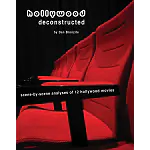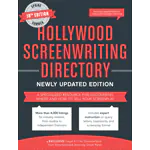Flashback can be a clever device or it can be an annoying one. If you use it sparingly and don’t rely on it too heavily to tell your story then it can really help with the revelation of subplot, the recollection of key past events tied into your current plot, and the resurgence of repressed memories – sprinkling a little style at the same time.
When learning how to write a script, think of flashback as just another weapon in the screenwriter’s armoury. Sometimes it may help you, other times it may just get in the way or over-convolute the story, but if you use it correctly this device can be a fantastic visual aid. Don’t use flashback because you are lazy. If you can find another way of telling your backstory then be innovative and pursue a more creative route that doesn’t rely on exposition.
Only use flashback if there is no other way to convey past events or if you feel that introducing flashback (or indeed flash forward) will enhance the piece in a stylistic manner. Sometimes writers even use flashback to intentionally confuse an audience or lead them down a particular path so as to turn the tables on them later on.
A great example of this was in The Usual Suspects where Kevin Spacey’s character retold past events to the cop Chazz Palminteri. We bought the story he was feeding us hook, line and sinker. And why not? We had no reason not to believe that what he was saying was the truth, and the director also presented the backstory as the truth with no hint to subterfuge. Then, right at the crucial moment in the third act, the writer and director pulled the floor out from under us and revealed that Kevin Spacey had been lying and that he was in fact the villain of the piece Keyser Söze.
Flashback, like any screenwriting device, such as voice-over, can be used or abused. Good writers use it in a way that enhances the narrative and character development of a movie without relying on it to solve plot problems. Great script writers find innovative ways to play with this cool device so that it feels fresh yet at the same time familiar. The trick is, striking the perfect balance.




